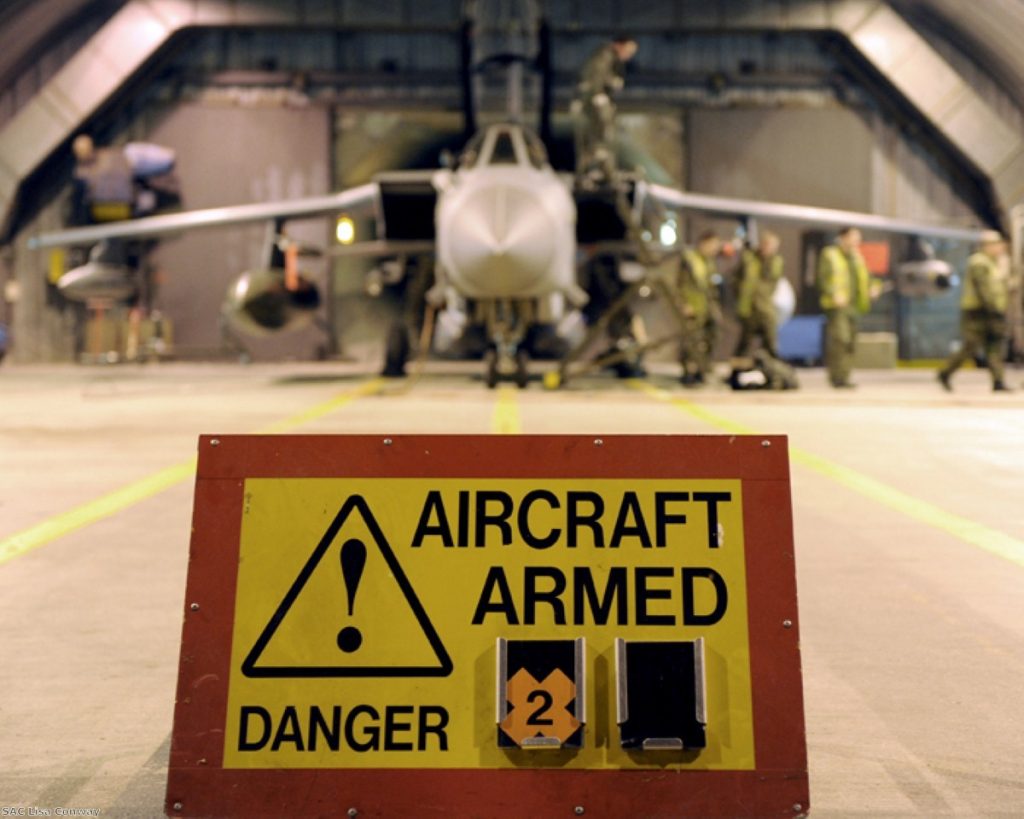Was it really worth going into Libya?
Britain's military power has already helped oust three regimes this century. The bleak outlook in Libya, Iraq and Afghanistan forces us to ask again: was it really worth it?
Before this week, the world's gaze had slowly turned away from Libya. Everything had calmed down following Muammar Gaddafi's bloody demise at the hands of the mob in his hometown of Sirte last October. It was replaced in global headlines by the grim civil war in Syria, occupying the concerns of diplomats and commentators the world over.
And then, on Tuesday night, there came the violent assassination of US ambassador Christopher Stevens. His unexpected death has been a wake-up call for Westminster.
UK politicians had spent the summer of 2011 wondering if Britain made a big mistake in getting embroiled in the effort to protect rebels and effect regime change in Libya. Since then they had themselves to forget about the country's problems. British lives were not at stake. The national transitional council (NTC) was left to get on with its own devices.


As Barack Obama sends his destroyers and marines back to north Africa, now seems a good moment to ask: whatever happened to Libya?
You might have thought that Libya would bounce back from years of autocratic rule under Gaddafi. Think again. The last year has seen the unelected NTC struggle to establish its own authority, let alone pave the way for democracy. Such has been the availability of weapons that the new regime has struggled to rein in the power of militia organisations, which have jealously guarded their newfound independence. Fighting between militias has led to many, many deaths. Sharia law is the foundation of the new legal system – not that political parties based on religion have been permitted. The Muslim Brotherhood, as you would expect, is far from happy. Tribal politics has instead come to the fore.
Elections finally took place on July 7th, but they did not pass peacefully. Among the many unsavoury incidents on polling day, five oil terminals at Brega were closed by ex-rebels in a bid to disrupt voting. Yes, the creation of a general national congress which will help draft a new constitution was achieved. But with so many competing factions at stake – including some calls for complete autonomy for the eastern part of Libya – the country's future looks deeply uncertain. There are few bright ideas emerging from Tripoli.
What happens next? One way of looking ahead might be to cast one's global gaze to the other country where British forces have entered, ousted and exited in the 21st century – Iraq.
Here the scale of the upheaval has been more dramatic and more bloody. More time has passed since the UK, which lost 179 soldiers since the March 2003 invasion that forced Saddam Hussein out of power, finally quit the country. More time for its fledgling democracy to unravel.
Iraq's big problem is its prime minister, Nouri al-Maliki. His ruthless pursuit of power, accelerated as soon as the last US forces finally left Iraqi soil at the end of 2011, has increasingly alarmed observers. Maliki has pursued an apparently ruthless campaign to extend his power base over the country's otherwise divided ethnic, religious and political groupings.
Maliki's pursuit of Iraq's independent electoral watchdog, which he blames for not having handed him an overall majority, and his increasing centralisation of power have been worrying enough. But it has been the hounding of Iraq's main opposition which has proved most troubling. Experts agree that trumped-up charges against his biggest rivals were substantiated by confessions from their bodyguards extracted under torture. The opposition has responded by seeking greater regional autonomy, but has only achieved limited success. Maliki's grip on power, meanwhile, seems too strong for him to be plausibly removed at any time in the foreseeable future.
Iraq has had enough. It was devastated by years of sanctions and hardship under Saddam's rule. Its virtual collapse during the first post-Saddam years, during which US troops struggled to contain bitter sectarian fighting, made matters worse, not better. In recent years, since the world's focus has moved on, the situation has barely improved.
Public services are still a mess. Most households receive electricity for less than a third of the day. Al-Qaida remains capable of mounting at least one terrorist atrocity a month, usually these days in the form of a car bombing rather than a suicide attack.
These track records of failure should be deeply troubling for Britain as it prepares for its biggest exit of all: the withdrawal from Afghanistan, where the death toll among UK soldiers has now reached 427. Under current plans the final handover of combat roles is just two years away. But little progress has been made against the Taliban and the Kabul government of Hamid Karzai remains deeply untrustworthy. Corruption is endemic. Pakistani interventions seem likely once western support for the central government diminishes.
Amid the day-to-day upheavals of British politics, it's hard to keep in mind developments in countries whose fate has previously been in the hands of UK MPs. Yet what happens in the years after foreign interventions should be uppermost in the minds of parliamentarians as they approve this or that foreign adventure.
The US ambassador to Libya's death is a reminder that not all is well in these countries. It foreshadows a repeat of the never-ending violence stills suffered in Iraq. And, maybe worst of all, it is a warning that Afghanistan's darkest years may yet still lie ahead.












